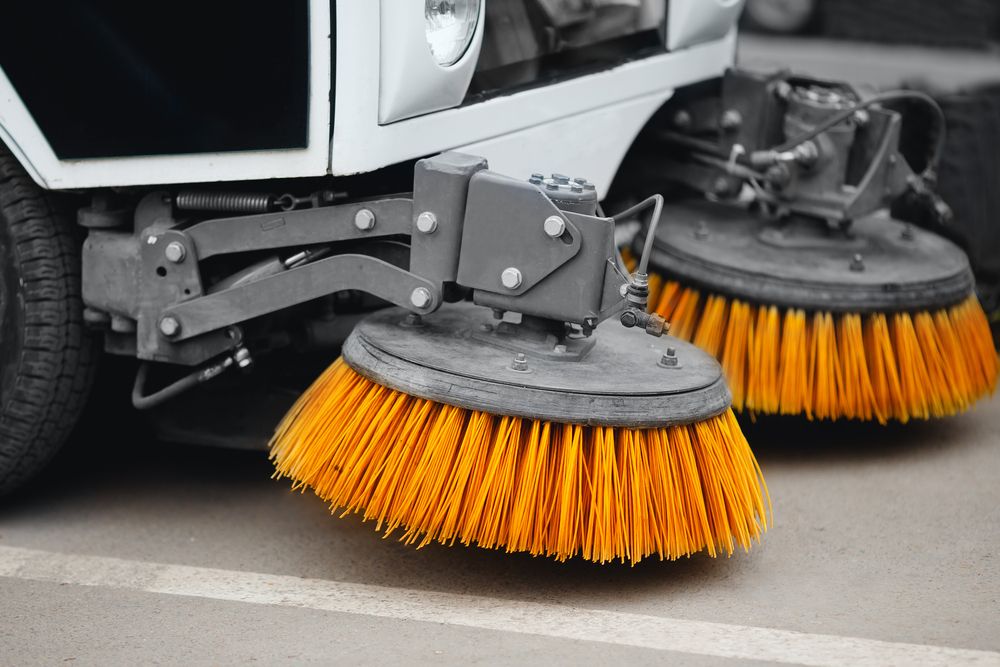
Industrial Brushes: A Comprehensive Guide
Understanding the Basics
As the name suggests, industrial brushes are specialized tools used in various industries for cleaning and polishing tasks. These brushes come in various shapes, sizes, and materials, making them versatile tools in industrial settings.
Historical Significance
The use of brushes in industrial applications dates back centuries. These tools have come a long way, from the ancient artisans who used rudimentary brushes for painting and cleaning to the sophisticated brushes used in today’s manufacturing processes.
Types of Industrial Brushes
Bristle Materials
Industrial brushes can have bristles made from various materials, including natural fibres like horsehair, synthetic materials like nylon, and metal wires. The choice of bristle material depends on the specific application.
Brush Configurations
Brushes, each designed for specific tasks, can be configured differently, such as rotary, strip, and cup brushes. Understanding the right configuration for your application is essential.
Applications in Manufacturing
Cleaning and Deburring
One of the primary functions of industrial brushes is cleaning and deburring. They can efficiently remove debris, burrs, and contaminants from surfaces, ensuring product quality and safety.
Surface Finishing
Industrial brushes are also used for surface finishing, creating smooth and polished surfaces in various materials, including metals, plastics, and wood.
Conveyor Systems
Brushes are vital in conveyor systems, helping with material handling, alignment, and cleaning on production lines.
Specialized Brushes for Unique Needs
Food Processing
In the food industry, brushes made from food-safe materials are used for cleaning and sorting fruits and vegetables, ensuring food safety and quality.
Aerospace Industry
Precision brushes are used in the aerospace sector to clean aircraft engines and maintain equipment.
Medical Equipment Manufacturing
Brushes with stringent quality standards are essential for cleaning and maintaining sensitive medical devices in the medical field.
Choosing the Right Industrial Brush
Factors to Consider
Selecting the right industrial brush involves considering factors like bristle type, brush configuration, and compatibility with the application.
Customization Options
Many manufacturers offer customization options to tailor brushes to specific needs, ensuring optimal performance.
Maintenance and Care
Extending Brush Lifespan
Proper maintenance, including cleaning and regular inspections, can extend the lifespan of industrial brushes.
Safety Measures
Ensuring worker safety is paramount when using industrial brushes. Proper training and safety protocols are crucial.
Environmental Considerations
Sustainable Materials
With increasing environmental awareness, using sustainable and recyclable materials in brush manufacturing is on the rise.
Recycling and Disposal
Proper disposal methods and recycling of industrial brushes contribute to environmental responsibility.
Innovations in Industrial Brushes
Nanotechnology
Nanotechnology is revolutionizing the world of industrial brushes, leading to brushes with enhanced performance and durability.
IoT Integration
Integration with the Internet of Things (IoT) allows for real-time monitoring and maintenance of industrial brushes, reducing downtime.
Case Studies
Explore real-world applications and success stories where industrial brushes have significantly impacted various industries.
Future Trends in Industrial Brush Technology
Automation
Automation is set to play a more prominent role in industrial brush applications, increasing efficiency and precision.
Industry 4.0 Integration
Integrating industrial brushes into Industry 4.0 initiatives will lead to smarter, more efficient manufacturing processes.
Benefits of Using Industrial Brushes
Improved Efficiency
Industrial brushes streamline processes, leading to increased efficiency and productivity.
Cost Savings
By reducing manual labour and improving product quality, industrial brushes contribute to cost savings.
Enhanced Quality Control
Precise and consistent results are achieved using industrial brushes, ensuring high-quality products.
Challenges in Industrial Brush Usage
Wear and Tear
Industrial brushes are subject to wear and tear, necessitating regular replacements and maintenance.
Compatibility Issues
Selecting brushes that are compatible with specific materials and applications can be challenging.
Safety Precautions
Handling and Storage
Handling and storing industrial brushes are essential for worker safety and product integrity.
Worker Safety
Training and safety measures should be in place to protect workers using industrial brushes.
Conclusion
In conclusion, industrial brushes are the unsung heroes of industry. These versatile tools are pivotal in ensuring manufacturing processes’ efficiency, quality, and safety across various sectors. Whether it’s cleaning, deburring, or surface finishing, industrial brushes continue to evolve, meeting the ever-changing demands of modern industry.






